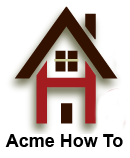How To Clean Rust Stains from Glass
The shower is subjected to environmental stress that not many other areas of the home experience. Constant heat and humidity, and regular use, makes the area hospitable to a variety of stains and buildup, including rust. One way that rust marks can occur is when a metal object such as a shaving cream can, razor, or metal soap dish is in close contact with the glass. The metal rusts, and because of the contact with the glass, transfers the stain. There are a few options for removing rust, depending somewhat on the severity of the stain and the type of glass. Recently installed shower door glass is a regulated type of safety glass, but features such as protective vinyl coating, textures and decorative appliqués can vary and may affect your decision on how to deal with the stain. Test all cleaning solutions and application techniques in an inconspicuous location before using them in a wider area.
If your shower glass door does not have a protective vinyl coating, or if the age and condition of the shower glass is such that the primary concern is to remove the rust, a copper scrubbing pad is a good solution. A looped, woven copper scouring pad, widely available at many grocery and hardware stores, will help abrade the rust stain. The copper should be slightly softer than the glass (to help avoid scratching), and can be used with light pressure. If you are concerned about scratching, test the pad in an inconspicuous area, and rinse and dry the test patch well to inspect for possible damage.
To help lubricate the stain, make a lightly sudsy solution of mild pH neutral dish liquid like Dawn or Ivory. Dip the pad in the cleaning solution, and rub the pad directly on the rust-affected area to help dislodge the stain. Alternate scrubbing the area with the copper pad and cleaning solution with wiping the area you are working on with a clean sponge wet with water to help rinse away copper that has been dislodged. Rinse the pad and refresh the cleaning solution as necessary. When the rust stain has been removed to your satisfaction, rinse the entire shower door well with water, paying particular attention to the areas that were stained with rust. Use a squeegee to wick away water and remove excess moisture that can encourage undesirable buildup. For an extra shine, wipe the shower door with a crumpled newspaper dampened with rubbing alcohol.
If you have a protective coating, decorative appliqué or other concerns about the woven copper pad being too abrasive, make cleaning solution with a product containing oxalic acid. Mix 1/4 cup of Bar Keeper's Friend or similar with about 1 quart of water, and stir well to make a dilute cleaning solution containing oxalic acid. Use a sponge to apply the dilute oxalic cleaner directly to the rust stains. Periodically rinse or sponge the area with plain water, and refresh the cleaning solution as necessary. After you are finished working with the dilute oxalic cleaner, lightly clean the entire shower glass, paying particular attention to the areas that were affected by rust (Use a clean sponge, and a lightly sudsy solution of water and mild pH neutral detergent). For an extra shine, wipe the shower door with a crumpled newspaper dampened with rubbing alcohol.
To help avoid future stains, don't store metal objects near your shower glass, and regularly clean and wipe dry along the metal track or frame. Keeping your shower area dry between uses and providing good ventilation will make it easier to prevent rust and other undesirable stains such as mold and mildew.
Caution: Never mix cleaning agents or chemicals, the result can be dangerous or deadly. Before cleaning, always test the agent on an inconspicuous location to determine its suitability and to make certain it does not damage the material. Wear appropriate clothing such as gloves and protective eyewear, and work in a well-ventilated area. Accidental inhalation or ingestion of cleaning agents can be hazardous and even fatal, particularly to pets and children.





